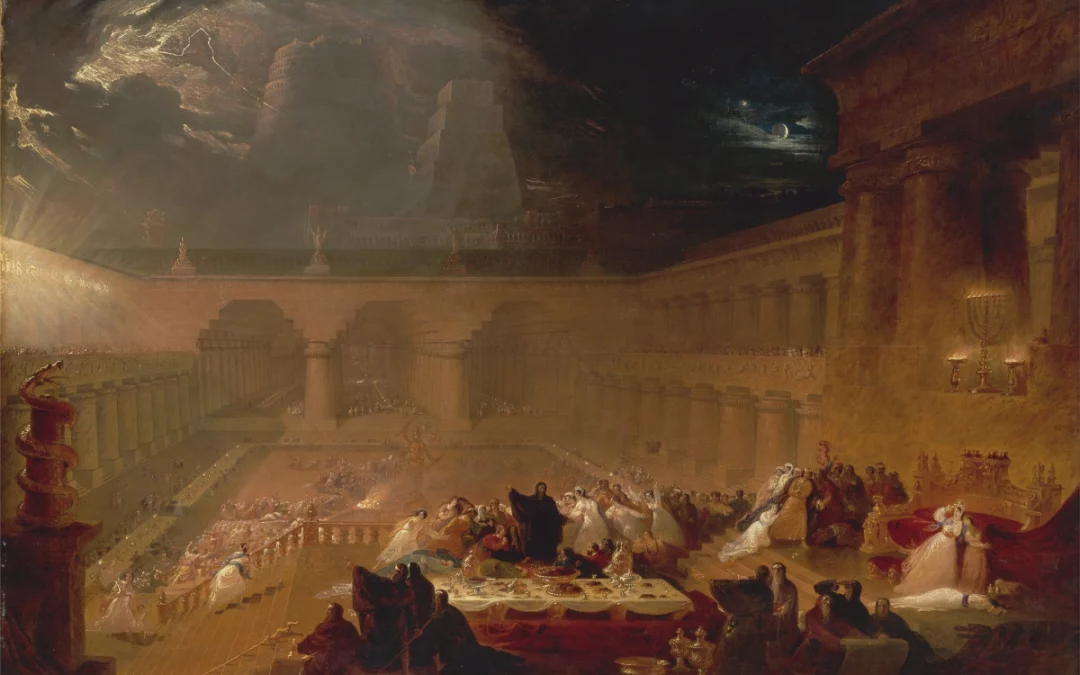Scripture, tradition, and the relationship between the two—it’s a conversation that needs to be had.
But the present manifestation of this conversation includes two sides talking past one another in a big way. One reason for this is the emerging divergence between two very different epistemologies. Presuppositionalism, broadly speaking—with its idealist DNA—makes Scripture the epistemological starting point of the Christian individual. Man’s idea of Scripture and Scripture itself are nearly the same. And this results in very little attention paid to man’s insufficiency once Scripture is presupposed as sufficient. It is generally assumed that the individual Christian has sole right in determining the proper interpretation of any given verse, chapter, or book of the Bible. Hence, the disdain of some for the tradition.
The classical Reformed position, on the other hand, understands there to be a distinction between Scripture as a source for our theology and our theology as it exists in the fallible mind. In other words, the fount of man’s theology is the text of Scripture, the principium cognoscendi, and man’s theology derives from that principle in an imperfect manner. (1 Cor. 13:12) This means Scripture is presupposed, but it is presupposed as a principle that leads to conclusions drawn by the fallible intellect. Naturally, therefore, we can admit these theological conclusions drawn from biblical exegesis to be fallible as well, while the source itself, Scripture, is infallible. Subsequently, a team effort in biblical interpretation becomes a needful service.
Scripture & the Tradition
Given the above explication, we should be readily able to see why the presuppositional milieu seems so allergic to the ministerial authority of tradition. Man presupposes the Scriptures in such a way that there’s functionally no difference between Scripture and man’s knowledge of Scripture. This cashes out in an infallible presupposition, or an infallible idea in man. In this one area, the knowledge of man is raised to an apostolic quality of infallibility. If Scripture is infallible, and there is no distinction between Scripture itself and man’s idea of it, man’s idea is infallible. And thus, it is no longer subject to peer scrutiny, say, from the tradition. It’s a simple matter of applying the law of identity and following the implications.
On the other hand, if classicalism is true, and Scripture acts as a perfect reservoir for our imperfect theological knowledge, it follows that we might maintain Scripture’s unique attribute of infallibility while at the same time admitting man’s fallibility. And this leads us to the good and necessary use of secondary authorities. If man is fallible, he needs help to understand the infallible Scriptures aright. Biblical interpretation is not purely an individual exercise. It requires the Holy Spirit, as He works in the individual, but also as He has worked in believers past and present. Francis Turretin writes:
When we dispute at any time from the fathers against our adversaries, we use them only as witnesses, to approve by their vote the truth believed by us and to declare the belief of the church in their time. We do not use them as judges whose opinion is to be acquiesced in absolutely and without examination and as the standard of truth in doctrines of faith or in the interpretation of the Scriptures.[1]
In other words, while the fathers are not determinative of biblical meaning, as Rome conceived of them, they are witnesses unto the truth. They are the Democracy of the Dead. The peer review of theological discourse.
But not even this minimalized view of tradition may be granted if indeed our presupposition of the Scriptures is one and the same with the Scriptures themselves. If this is the case, to criticize the presupposer is to criticize what is presupposed. If Scripture and our idea of Scripture are identical, then subjecting ourselves to the voice of history is as bad as subjecting Scripture itself to the voice of men! In this scheme, to make man accountable to other men is to make Scripture accountable to man.
The Protestant View of Tradition
During the Reformation, two different views of tradition were forcefully advanced. There was “tradition 1” (T1), which taught the magisterial authority of Scripture, the meaning of which is witnessed by ministerial authorities, like creeds, confessions, the early church fathers, and biblical commentators. But “tradition 2” (T2) taught that there were two magisterial authorities, Scripture and tradition—the latter being able to create doctrines not found in the former. In the modern discourse, a “tradition 3” (T3) seems to emerge which rejects the place of tradition in theology entirely. Charitably, we might credit the (T3) position with maintaining a use for tradition, but what that use is is not abundantly clear. On (T3), tradition may be interesting, but it isn’t authoritative in any measure, and it rarely maps to the church’s contemporary situation.
For example, in a recent journal article, James White writes:
Just as in the days of the Reformation, citations and counter-citations of earlier church writings appear in the battles of our own day, whether in reference to the positions of Rome, Eastern Orthodoxy, or any other system that claims to honor both Scripture and other external sources of authority (whether those sources are necessary for the interpretation of Scripture or whether they exist as co-equal or even superior authorities alongside of Scripture). But it is here that we must insist upon this maxim: Let the early church fathers be the early church fathers. That is, we must allow them to speak in their own context, to their own battles, in their own language. We cannot demand that they answer our questions and engage in our conflicts, nor can we assume that the battles back then were identical in form and substance to ours today. It is far, far too easy to abuse historical sources in the service of a cause or a movement. Rome has done this, and has done so authoritatively, by claiming her dogmas have been the “constant faith of the church” down through the ages. But Protestants, free of the dogmatic constraints of Rome’s infallible pronouncements, can still emphasize a particular lens through which the statements of earlier generations and previous centuries are filtered, giving a distorted view of earlier theologians’ actual beliefs. Ironically, such modern lenses are often constructed with carefully selected citations of the fathers by contemporary historians who insist that they are, in fact, simply walking in the tradition that has come down to them.[2]
Apparently, there is a severance between our time and their time. The issues they dealt with were their issues, and the issues we deal with are ours. The implication is startling. Their doctrinal conclusions were formed from issues unique to their time. And this leaves the reader scratching his head, asking, “Are their doctrinal conclusions to be left behind, as unique to their own day, as were their theological disputes?” Of course, Ecclesiastes 1:9 tells us there is nothing new under the sun. So, one has to wonder what White intends to achieve by seemingly isolating the fathers and their problems to their historical context.
Furthermore, White’s engagement of his interlocutors simply fails to remark upon crucial aspects of (T1) and the Reformational doctrine of Sola Scriptura as the norma normans over subordinate authorities, norma normata. The “contemporary historians,” though not named in the above quote, presumably includes the historians and theologians White has been interacting with over the last year—a year which no doubt contextualizes the entire journal issue in which White’s article appears. And those particular historians and theologians, as far as I can tell, do not accept White’s presupposition that historical figures are adopted as idealistic “lenses” through which Scripture must be filtered. It has been unequivocally stated that Scripture is the source and principle of true theological knowledge, and that this source of knowledge is a document read by the Holy Spirit-filled individual with Holy Spirit-filled voices from the past. To use Turretin’s language, employment of the creeds, confessions, and historical commentary is the employment of “witnesses”—other minds which demonstrate that we ourselves are not going it alone.
The Insufficiency of Man
This brings me to what should be an elephant in the room: the insufficiency of man. Fundamental to the task of theology is the theologian’s humble acknowledgment of his own inadequacy. He has a keen awareness of Romans 3:23, “for all have sinned and fall short of the glory of God,” noting especially the present tense of his fallenness in that text. He confesses that his heart is accurately diagnosed by Jeremiah when he writes, “The heart is deceitful above all things, And desperately wicked; Who can know it?” (Jer. 17:9)
Because of man’s inadequacy, the Holy Spirit turns the Christian to his fellow man, “Without counsel, plans go awry, But in the multitude of counselors they are established.” (Prov. 15:22) Through consort with his brothers, he gains a wider periphery. A single man can see, but many men can see more. He also gains accountability, and is less likely to chart his own, novel path. Heretics, though claiming love for the Scriptures, gain nothing but their own innovative opinions leading to their spiritual shipwreck. A helmsman needs a navigator to chart the sea.
Conclusion
Once we acknowledge the difference between the primacy and adequacy of the Scriptures versus our own inadequacy, we will clearly begin to see the need for a “multitude of counselors” when it comes to biblical interpretation and theological formulation. So long as Scripture and our commitment to it are seen as one and the same (some corners of presuppositionalism), man’s insufficiency figures less into the exegetical picture. So long as Scripture and man’s idea of it are the same, Scripture’s adequacy and man’s adequacy are one and the same. The result is an unfalsifiable, individual Bible interpreter that sets himself above the collective voice of the historical church. A self-made pope.
For these reasons, it would be best to understand Scripture as sufficient, man as inadequate, Scripture as chiefly authoritative, and tradition as a ministerial aid to man’s intellectual and ethical handicaps.
Resources:
[1] Francis Turretin, Institutes of Elenctic Theology, vol. I, (Phillipsburg: P & R Publishing, 1992), 163.
[2] James White, “What Is Sola Scriptura,” Pro Pastor,Vol. 1, No. 1, FALL 2022, A Journal of Grace Bible Theological Seminary, 3-4.






